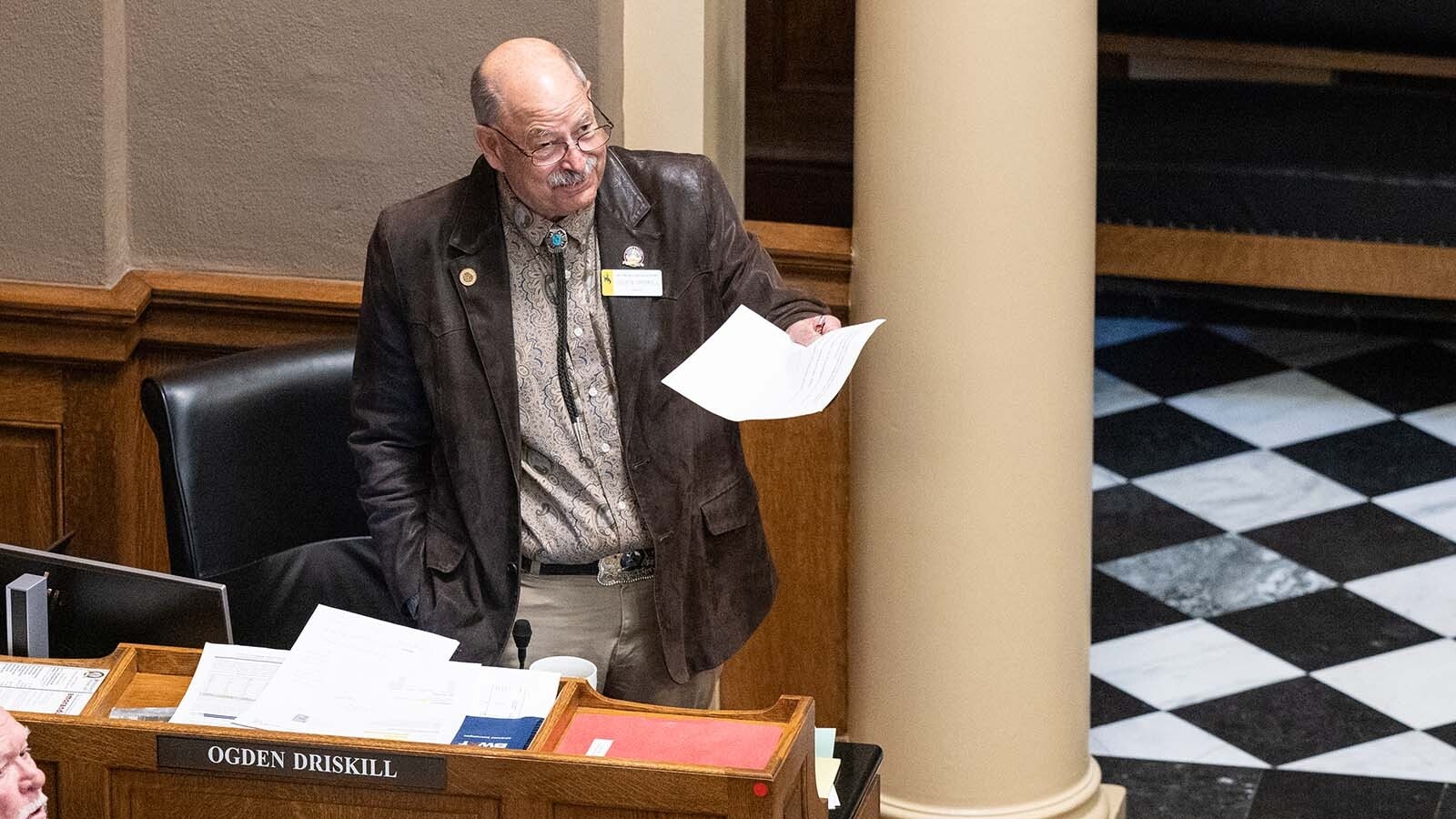WASHINGTON, D.C. — The U.S. Senate on Wednesday advanced a new version of landmark cryptocurrency legislation backed by U.S. Sen. Cynthia Lummis, R-Wyoming, though some Democrats complained they were not allowed to call up votes on amendments on the earlier version as promised.
Lummis, who chairs the Senate Banking Committee’s digital assets subcommittee, praised Senate Republican Leader John Thune of South Dakota moments after Wednesday’s preliminary vote advancing the latest incarnation of the GENIUS Act.
“This is what visionary leadership looks like,” Lummis posted on X alongside a video clip of Thune, in which he thanked Lummis and other lawmakers for their work.
“Big thanks to @LeaderJohnThune for seeing this moment for what it is, and understanding the importance of digital asset legislation,” Lummis added. “Let’s get it done.”
Lummis did not speak on the floor Wednesday as proponents and critics alike took turns. Her office told Cowboy State Daily she had no comment at this time other than the X post.
Lummis helped draft the bill in the previous and current terms of Congress. This time around she is a co-sponsor, as U.S. Sen. Bill Hagerty, R-Tennessee, is the lead sponsor.
Two Sides Of The Same Coin
The GENIUS Act would regulate a category of cryptocurrency called stablecoins, which are pegged to a fixed currency like the U.S. dollar.
Proponents say the bill would help cement the U.S. as a global leader in the crypto industry, expanding economic opportunity while providing tools to combat money laundering by drug cartels, terrorists and others. They also say it has consumer safeguards.
Opponents say it may actually embolden bad actors as crypto becomes mainstream. Critics also say it does nothing to stop President Donald Trump’s involvement in the crypto business — which they see as corruption, or the potential for it. Some say it has loopholes that could bring down the entire U.S. financial system.
Contentious Procedure
Wednesday’s 68-30 vote on the GENIUS Act sets up a vote on final passage, possibly later this week.
The bill has reached this stage before, as a May 19 preliminary vote set up a final vote. But things changed.
Under the terms of that May 19 vote, Thune promised amendments would be considered on the floor in conjunction with the final vote on the underlying bill, and dozens of amendments were filed. Lawmakers anticipated they would be considered on the floor.
But on Monday, Thune sent the bill back to committee and then put a renumbered version back on the floor Wednesday along with a new rule that outraged Democrats: No amendments will be allowed to be considered on the final vote on this version, whenever that happens.
“For weeks, Leader Thune promised that senators would have a chance to vote on amendments on the stablecoin bill. Today, he broke that promise,” U.S. Sen. Elizabeth Warren of Massachusetts, the Banking Committee’s top Democrat, said Wednesday.
“At this moment I expected to be on the floor urging the Senate to adopt a series of amendments filed by both Democrats and Republicans — amendments that would fix the core problems with this bill,” Warren said.
Added U.S. Sen. Jeff Merkley, D-Oregon: “I would say to my colleague, if you promise an open amendment process, deliver it. Because people made votes on the motion to proceed to this bill based on that promise. And now you’ve broken it.”
The number of amendments hit 82 by last Friday and soared to 128 by Wednesday.
2008 Financial Crisis
Warren compared the crypto industry’s lobbying for the bill to the efforts of the financial derivatives industry to get a law enacted 25 years ago.
She said that law made over-the-counter derivatives mainstream, and OTC derivatives helped trigger to the 2008 financial crisis.
However, the 68-30 vote Wednesday showed significant bipartisan support for the GENIUS Act. U.S. Sen. Kirsten Gillibrand, D-New York, noted she has been working with Lummis for three years on the bill.
“Doing nothing and protecting the status quo is not only irresponsible, it is unacceptable,” Gillibrand said Wednesday.
The official roll call tally was not immediately available. The 68-30 outcome means two senators did not vote, but only 60 votes in favor were needed to advance the bill.
Bill Origins And Trump
The bill was first brought to the floor on May 8, and Democrats blocked it by a wide margin, despite Thune saying at that time the bill could be amended later. Needing 60 votes to advance May 8, the bill did not even get a simple majority of 51.
That setback stunned Republicans because the bill had cleared the Banking Committee in March with decent bipartisan support. But the May 8 floor vote occurred just as Trump was escalating his involvement in the crypto business, drawing new scrutiny.
Some Democrats, including Gillibrand, were rattled, refusing to advance the bill May 8. Many Democrats called for changes to halt Trump from profiting from the presidency, and there were other issues unrelated to Trump.
When the GOP brought the bill back May 19, Thune said nothing in the bill had changed. Democrats did not disagree, but many appeared willing to help move the bill along because they agreed with the core idea of regulation — and Thune was still promising open amendments. Thus, after the May 19 vote, it appeared that final passage was a foregone conclusion.
It was the amendments, though, that brought about the new twist.
Dozens were filed since May 19 — some related to stablecoins, some not — and lawmakers in both parties were expecting floor votes on those. Thune did not say Monday or Wednesday what amendments, if any, were troubling him. In any event, he changed course by refusing to allow amendments to be considered on the floor.
But it appears not to matter that now, Thune will not allow amendments on a vote for final passage.
The 68-30 vote Wednesday tees up a new vote on final passage, with no amendments to be considered on the floor. And if enough Democrats were upset by that, they would have not lent sufficient support Wednesday to easily get it past the 60-vote threshold.
Sean Barry can be reached at sean@cowboystatedaily.com.





